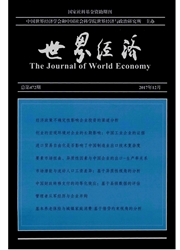

 中文摘要:
中文摘要:
本文考察劳动收入税和资本收入税影响结构转型的作用机制,并估算结构转型框架下劳动收入税和资本收入税的社会福利成本。研究发现,非位似偏好是劳动收入税影响结构转型的重要原因。若假设位似偏好,劳动收入税不影响结构转型。资本收入税通过非位似偏好和资本深化的渠道影响结构转型。基于中国的数值模拟结果显示,劳动收入税和资本收入税抑制了结构转型,资本收入税的扭曲性高于劳动收入税。通过与单部门框架的对比分析,本文发现单部门框架没有考虑税收政策对结构转型的抑制作用,从而低估了税收政策的社会福利成本。相对于劳动收入税,单部门框架下资本收入税的社会福利成本被低估得更为严重。
 英文摘要:
英文摘要:
This paper explores the transmission mechanism of capital income taxation and labor income taxation on structural transformation, and estimates social welfare cost of taxation. We find that non- homothetic preference is the channel through which labor income taxation can affect structural transformation. Capital income taxation can affect structural transformation through both non-homothetic preference and capital deepening. Numerical simulation in China shows that both capital income taxation and labor income taxation have negative effects on structural transformation and the distortion of capital income taxation is larger than that of labor income taxation. Comparing our model with the one sector model, we find that the latter neglects the impact of taxation on structural transformation and therefore underestimates social welfare cost of taxation. In comparison with the labor income taxation, social welfare cost of capital income taxation has been more seriously underestimated in one sector model.
 同期刊论文项目
同期刊论文项目
 同项目期刊论文
同项目期刊论文
 期刊信息
期刊信息
